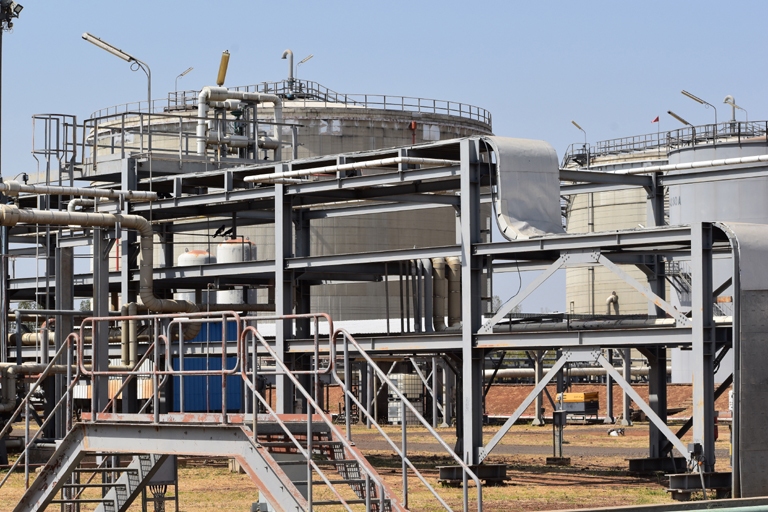The gradually improving security situation in South Sudan should see oil production rise and create some of the jobs needed to help maintain peace in the world’s newest country. Relations with neighbouring Khartoum have improved since Omar al-Bashir’s 30 year rule came to an end in April 2019, while the peace deal with domestic rebel forces has enabled the creation of a Transitional Government of National Unity.

The Paloch oil fields in South Sudan Source: South Sudan Ministry of Petroleum
After decades of fighting for independence from Khartoum, South Sudan became a sovereign nation in 2011. Hopes were high that this would result in improved living standards, partly fuelled by the country’s substantial oil production, but a civil war broke out in 2013, affecting both ambitions.
Hon. Eng. Awow Daniel Chuang, Undersecretary at the Ministry of Petroleum, commented:
“The political process definitely affects the hydrocarbons sector. If South Sudan’s political situation is unstable and if there’s a perception that there are political problems, investors will stay away from the country, especially from the hydrocarbons sector.”
South Sudan’s security problems were exacerbated by its geographical location within an area more widely affected by instability, stretching from Darfur, parts of Chad and the Central African Republic to northeastern Democratic Republic of Congo and northern Uganda. Insecurity on one side of a border generally makes it more likely on the other and so the various civil war and cross-border conflicts in the region have fed into each other.
However, South Sudan’s President Salva Kiir and opposition leader Riek Machar signed a peace deal in September 2018, followed by a binding settlement and regional power sharing agreement this February. In mid-June, the two sides agreed on the process for choosing regional governors.
Chuang said:
“We think right now the political situation has improved, following the signing of the peace agreement and formation of the new government...I’m sure after the Covid-19 pandemic has passed, many investors will come to the country, as they have been waiting for the right opportunity. We know it is a lengthy process, but with increasing political stability, we hope to attract more investors to the oil and other sectors.”
Oil companies have begun to rehabilitate mothballed oil fields. For instance, a consortium of China National Petroleum Corporation, Petronas, ONGC and South Sudan’s own Nilepet have brought the Toma South and Unity fields back on stream and are increasing output on the Al Har, El Toor and El Nar fields, adding 52,000 b/d to national production.
The government hopes to boost total output from 170,000 b/d in July to 350,000 b/d by the end of 2023. The country’s first licensing round for new acreage is also planned for next year, as Juba seeks to capitalise on the improved security situation to attract new investors to the country.
As in other conflict affected countries across the continent, expanding the economy through oil revenues is also vital to create jobs and deter people from taking up arms. There are hundreds of thousands of people for whom fighting had become a way of life from post-conflict Angola and DR Congo to Liberia and Sierra Leone, as well as South Sudan. They need more than merely the prospect of poverty and low living standards to convince them that fighting is not the solution to their problems.
KeyFacts Energy: South Sudan country page
 KEYFACT Energy
KEYFACT Energy